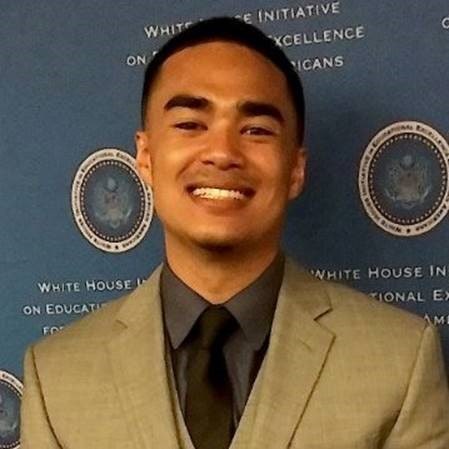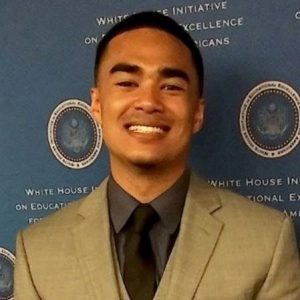
If there were a Heisman Trophy for the most articulate angry black undergraduate, Sy Stokes, a recent UCLA graduate, would surely have won.
Subject of a fawning, sprawling 3200-word profile by Eric Hoover in the Chronicle of Higher Education (“A Young Man of Words” — access may require subscription), Stokes made a name for himself in a video, “The Black Bruins,” attacking UCLA as a “racist corporation,” a “place of privilege, callous to the challenges” black men face. “So with all my brothers’ hopes and dreams that this university has tried to ruin,” he cries poetically, “How the hell am I supposed to be proud to call myself a Bruin?”
“The Black Bruin” went viral, which “has been viewed almost 2.3 million times,” and made Mr. Stokes a star. Youlanda Copeland-Morgan, UCLA’s associate vice chancellor for enrollment management,” the Chronicle writes, “took to Mr. Stokes. She invited him to a College Board conference where he spoke to a standing-room-only audience. When he started applying for jobs, she wrote him a letter of recommendation.”

By now Mr. Stokes should be used to being regarded as a rising black voice. A year and a half ago he was also the subject of Scott Jaschik’s equally adoring profile in Inside Higher Ed, “To Be a Black Man at UCLA.” Given this repeated treatment of Mr. Stokes as today’s emblematic — and hence to be embraced — angry young black man, as virtually a young James Baldwin in waiting, I think it is worth looking more closely at the “diversity” that he both demands and represents. There are more than a few ironies.
- According to the Chronicle, Stokes is “the son of a black father and a Chinese mother.” Thus he could have as accurately identified himself as “Asian,” but if he had done so he might well have not been admitted to UCLA — despite the fact that it is not allowed to take race into account — and would certainly have had a much harder time getting accepted to any selective university not obligated to be colorblind.
- There is at least some evidence that he arrived at UCLA with a chip on his shoulder. Consider this sad, revealing anecdote reported by the Chronicle:
Mr. Stokes had first tasted racial tension at 14…. One day a girl from another high school invited him to her homecoming dance. Cool, he thought.
On the big night, he wore a Yankees cap, T-shirt, and Nike basketball shoes. As soon as he got to the school, he felt uncomfortable. Nobody was dressed like him, and just about everyone was white. For the first time in his life, he thought about how his skin was darker than others’. “People stared at me like crazy,” he says. “Whatever I did, I had eyes on me.” Standing on the crowded dance floor, he felt alone.
- Less star-struck observers might think the above was not so clearly racial tension. Moreover, there is also evidence that Mr. Stokes himself is not so enamored of “diversity.” According to the Chronicle, his dance experience was simply one example, continued at UCLA, of “years of feeling unwelcome among peers who didn’t look like him, who came from different kinds of neighborhoods.” Wait. Isn’t exposing students to peers “who don’t look like” them, who come from “different kinds of neighborhoods,” the very essence of the “diversity” that educrats at UCLA and other selective institutions insist is the sine qua non of an effective education?
- Perhaps Mr. Stokes was angry because he realized that the “diversity” preached and practiced by UCLA was not intended for people like himself. On the contrary, its rationale and purpose was and is to enable “peers who didn’t look like him” to benefit from being exposed to the “difference” he represents. Indeed, concerned as he was with racial exploitation, he might well have been aware of the unwittingly revealing defense of “diversity” then University of California Chancellor Robert Birgenau offered to the San Francisco Chronicle in February of his freshman year: “We no longer can live in our own world surrounded by people who are just like us.” One need not be a deconstructionist, as I argued here, to figure out who “we” and the “people who are just like us” are, and in fact discerning minorities have realized that they are merely the instruments used to provide “diversity” to others, not its beneficiaries.
There is a final irony fueling Stokes’ anger, an anger usually expressed in the language of underrepresentation — “Of men at UCLA,” he told Inside Higher Ed, “black males make up 3.3 percent; of the 2,418 entering male students this year, 48 were black,” etc. He claimed it was “‘a big cop out’ for UCLA to blame its low number on the ban on consideration of race.” As for what he wants, he insisted “We are not asking for a handout. We are asking for a level playing field.”
“Level playing field,” of course is never defined. I have defined it, here, as “[t]he political, social, and economic terrain that will ensure that two or more teams with different levels of ability, experience, equipment, interest, attitude, coaching, etc. always achieve equal scores and win the same number of games,” but I do not think that’s what Stokes has in mind. I think he means “admit more blacks.” But insofar as the goal of admitting more “underrepresented” minorities is so that colleges can “mirror the community,” demographic statistics do not support Stokes’ demand.
“Blacks were 3.8% of the freshmen who entered UCLA” in the fall of 2013, I noted here in discussing Stokes’ video. “According to the latest census data, blacks are 6.6% of the population of California. Thus, by whatever calculus ‘underrepresented’ and ‘level’ are determined, whites are left holding a considerably shorter end of the stick than blacks: they are 73.5% of the population of California but only 27.1% of UCLA undergraduates.”
The only practical way for UCLA to have a higher proportion of students who look like Stokes’ father is to impose a rather strict quota on the admission of students who look like his mother. As of Fall Quarter 2014 Asians were 33.5% of UCLA undergraduates but only 14.1% of California’s population.
Well, he’s got competition for the “next James Baldwin” sweepstakes, as Ta-Nehisi Coates is the current front runner. Whatever the outcome, both men will feast on speaking fees and book deals.
On today’s diversity-enhanced college campus, where groups strictly self-segregate in the dining hall and elsewhere, there simply may not have been a table for Mr. Stokes. I seriously doubt Chinese-American students were particularly receptive. The same was likely true for blacks.
Superb piece. Mr. Stokes has figured out that his comparative advantage currently lies in capitalizing on the way many other Americans fall for complaints about how unfair the nation, and especially its big universities are. He’s a celebrity simply for griping to our “progressives.”
“…despite the fact that it is now allowed to take race into account…”
Do you mean NOT allowed? The sentence would make more sense that way, and I believe that would be more consistent with California law.
Yes, that was my typo. It should be “not,” not “now.” I would say that was my support staff’s mistake, but I don’t have a support staff (and it shows).